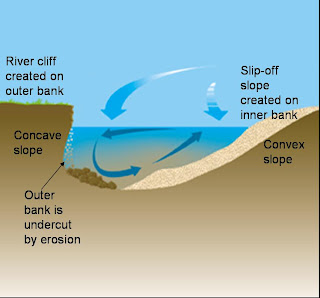@kennethamy,
kennethamy;139880 wrote:I think that Heraclitus said that we cannot step twice into the same river, not in the same river.
I can step twice in the same river simply by being in the river, and then taking one step, and then, while remaining in the river, taking a second step. The question is whether I can step into the river, go out, and then step into the river again. That would be stepping twice into the same river.
Next, as I already pointed out, once we distinguish between the river, and the water flowing though the river, we can see that although we cannot step twice into the same water (if it is flowing quickly) we can step twice (or many times) into the same river. The river is a geographical entity. The water is not.
A kindergarten kid can give the same answer as your well-thought 'philosophical' answer.
If I says to a kindergarten kid, that he cannot write with the same 'pencil' twice, he would think i am a stupid fool.
He can of course, proceed to demonstrate that he can write with the same 'pencil', ten and a hundred times by writing once, put down, then write again and again.
He would then proudly announce; see, i can write with the 'same' pencil twice and ten more times.
However from a philosophical and higher truth perspective, did the kindergarten kid wrote from the same pencil, everytime he picked it up and write something.
No, it is not the same pencil.
Here is why;
Let say, the first time he picked up the pencil,
the composition of the pencil is,
P1 - X amount of graphite + other pencil material,
the moment he wrote on a piece of paper, pencil P1 become P2
P2 - (X-Y) amount of graphite + other pencile material
Everytime the kid writes, there is lesser and lesser amount of graphite in the pencil and less wooden material if the pencil need shapening.
The pencil becomes a different pencil everytime it is used to write something.
Truth is conformance with reality.
In reality, pencil P1 become pencile P2 when it is used to write something.
Therefore it is true, we do not write with the same pencil twice.
What remains constant is only the concept 'pencil' but not the real pencil.
Therefore one cannot write with the 'same' pencil twice.
It is the same with the river.
The water and the riverbed and the riverbank change every nano-second.
Different water molecules flow through specific part of the river, in addition, rocks, sand and silt are added and taken away every nano-second from the riverbed and river banks.
Thus every nano-second, and in reality and truth there is a new river which is physically different from the previous.

Why Kennethamy and the kindergarten kid think it is the same, is because they are hypnotized by concepts, universals, abstraction and simplicity.
Concepts are more 'seductive', easier to handle, practical and useful.
The truth and reality are more complex mentally and are more suited to higher philosophical thinking.